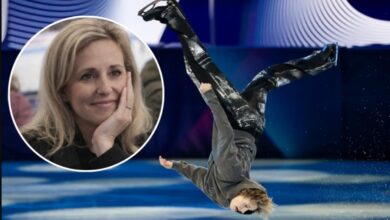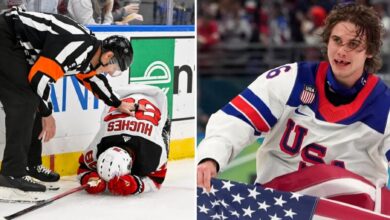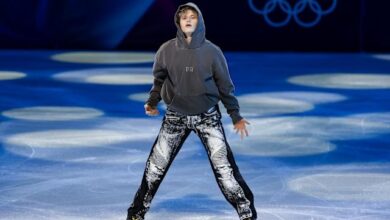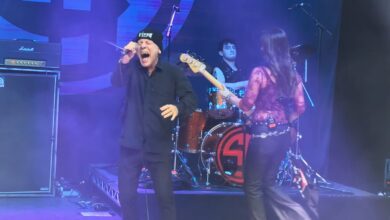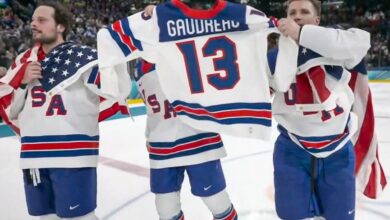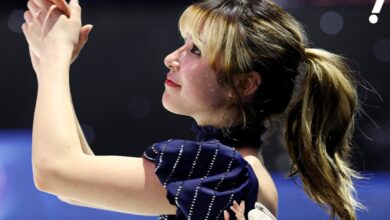Foo Fighters & Rick Astley Turn the O2 into a Stadium-Size Rickroll
The Foo Fighters’ reputation for mischief met their love of big-tent rock at London’s O2, where the band pulled off a gleeful bait-and-switch by bringing out Rick Astley and sliding straight into his signature “Never Gonna Give You Up.” Instead of treating it as a quick gag, they leaned into a full performance, weaving the punchy drive of a Nirvana-flavored progression under Astley’s pop melody. He answered with a rougher, live edge to his normally polished delivery, landing the surprise with an energy that felt both cheeky and cathartic.
What could have been a one-line joke turned into a stadium-sized singalong, with the crowd erupting as soon as Astley stepped forward and the band locked into the groove. The chemistry onstage carried into the stands, where fans jumped, shouted the refrain at full volume, and rode the joke until it became a genuine rock moment. The internet did what it always does with nostalgia and novelty, pushing the clips into the millions of views and keeping the bit alive long after the house lights rose.
Part of the reason the mashup landed so hard was musical, not just meme-friendly. The Fighters ramped up the tempo, added crunchy guitar and a more aggressive drum pocket, and let Astley ride above the noise with confident phrasing. Dave Grohl played ringmaster, cueing the band like a bar-band lifer who knows when to stretch a chorus and when to drop everything to let a hook breathe. The result felt less like parody and more like a rock arrangement hiding in plain sight.
Astley, already a veteran by then at fifty-two and long past the first arc of his chart career, proved he could command an arena without leaning on studio gloss. His pitch and control held steady even with a heavier band at his back, and he smiled through the entire gag as if he’d been fronting a rock outfit his whole life. Grohl’s grin—impossibly wide, barely containing a laugh—made the moment read as pure joy rather than cynical internet-bait.
The crossover wasn’t a one-off curiosity either. Grohl and Astley have crossed paths repeatedly, including the now-famous night in Tokyo where the Foo Fighters, mid-festival high, decided to drag “Never Gonna Give You Up” into their set and summon its originator from the wings. Astley later returned that goodwill in the studio by taking a swing at one of the Foos’ most beloved songs, “Everlong,” and the reinterpretation found its own audience online, racking up millions of views as fans embraced the sincerity of his take.
His “Everlong” approach leaned intimate rather than ironic. Accompanying himself on acoustic guitar, he stayed close to the original structure but applied more dynamic push and pull to the vocal, swelling phrases where Grohl often stays stoic and easing back to let the chord changes land with more space. The performance felt like a nod of respect rather than a novelty cover, the kind of version that could sit comfortably in a radio session or an unplugged broadcast without needing studio sweetening.
When he later spoke with Virgin Radio UK about how that Tokyo appearance came together, Astley laughed at the chaos behind the scenes. He explained that he’d been on the same festival bill, parked at the side of the stage because he wanted to watch every minute of the Foos’ set—Grohl and the late Taylor Hawkins being two musicians he’s long admired. He joked that there’s a drummer somewhere in his DNA, a wink to the fact that he started out behind the kit before pop stardom pulled him to the front.
According to Astley, a Foo Fighters roadie appeared mid-set, thrust a microphone into his hands, and shouted that Dave wanted him out there immediately. He was jet-lagged, admittedly a couple of beers in, and barely had time to think. The kicker? The band had already jammed “Never Gonna Give You Up” in rehearsals, just in case they could tempt him into a cameo. With that, he walked on and let instinct—and the roar of a festival crowd—do the rest.
He later recalled staring out at roughly fifty thousand people while belting his eighties hit with one of the biggest rock bands on earth and thinking the whole scene was deliriously absurd in the best way. He warned anyone hunting down the clip that the intro carries a fair bit of swearing—he’d gotten caught up in the rush and let fly without a filter. That unguarded vibe is a big part of why fans keep returning to the footage: it feels like lightning captured rather than a calculated stunt.
What lingers about these team-ups is how they reframe the “Rickroll.” Instead of a punchline that interrupts a serious moment, the joke becomes a door to a communal release where nostalgia, rock muscle, and pop craftsmanship meet. The Fighters’ willingness to share the spotlight and Astley’s comfort stepping into a heavier lane prove that a good hook thrives anywhere it’s played with conviction. By the end, the meme isn’t the story—the music, the spontaneity, and the shared grin across thousands of faces are.
